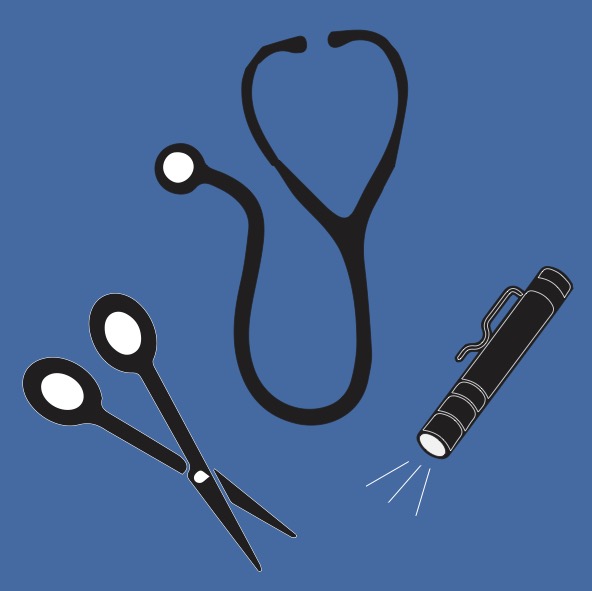Students at Binghamton University’s Decker School of Nursing can now receive medical kits for free.
The Assessment Kit Sponsorship program, launched in 2018, provides donor-funded kits to qualified students in the Decker School of Nursing. An assessment kit, which costs $150 and is required by all nursing students in Decker College, contains a stethoscope, a diagnostic penlight and bandage scissors along with other items, according to BingUNews.
Students enrolled in the traditional four-year program at Decker School of Nursing are required to have a kit by the beginning of the fall semester of their junior year. Students in the Baccalaureate Accelerated Track (BAT) program, a 12-month program for those already holding a bachelor’s degree, must have a kit at the beginning of their year-long program, which starts in the summer.
There is no formal application process for the program according to Sara Wozniak, senior assistant dean of enrollment and academic success at the Decker College of Nursing and Health Sciences. Each student is automatically considered for a sponsored kit based on financial need. Should the student not enroll, the kit goes to the next student on a list provided to BU’s Office of Financial Aid.
Recipients then pick up their kit before classes begin in order to be prepared for clinical rotations and patient simulations. For the 2022-23 academic year, 33 kits were awarded to students.
“This opportunity gives alumni, faculty, staff and friends of Decker [School of Nursing] a way to see their support transparently,” Wozniak wrote in an email. “Recipients of a sponsored kit write a thank you note to their donor unless it is anonymous, and we host a reception so they can meet one another in person. Ideally, they establish a connection that continues beyond the celebration.”
According to Decker School of Nursing’s website, students are responsible for multiple fees outside of tuition — including $300 for uniforms, $220 for clinical learning support and $20 for background checks. This is in addition to discretionary fees which include vaccinations, textbooks and mandatory health insurance. For the fall semester, juniors pay $2,946.50 in these fees, with seniors paying $3,628.50 and BAT students paying $3,833.50.
Wozniak explained what led to the program’s creation.
“A brainstorming session in 2014 sparked the idea when I was meeting with alumni and development offices,” Wozniak wrote. “It was inspired by a medical school that promoted a similar program where alumni purchased stethoscopes for incoming medical students. Our program officially launched in the fall/winter of 2018.”
Jelaine Evangelista, a recipient of a sponsored kit and a senior majoring in nursing, said the program alleviates some of the financial stress of nursing school.
“Nursing school comes with many expenses, and it’s very comforting knowing that the Decker School of Nursing faculty have made numerous efforts to put their nursing students first and ensure that we succeed in the program,” Evangelista said. “Every year, the Decker [School of Nursing] faculty contacts [BU] alumni to provide donations to help purchase the assessment kits consisting of a stethoscope, blood pressure cuff and many other necessary supplies that are essential for the clinic.”
Francheska Gomez ‘22, a first-year graduate student pursuing a BAT in nursing, is also a recipient of a sponsored kit. Gomez said she feels the program will benefit nursing students.
“I think this program makes nursing school more affordable, and I’m glad it exists,” Gomez said. “I believe it positively affects the student population since it levels out the playing field for those who are unable to purchase kits on their own regardless of the circumstances.”



